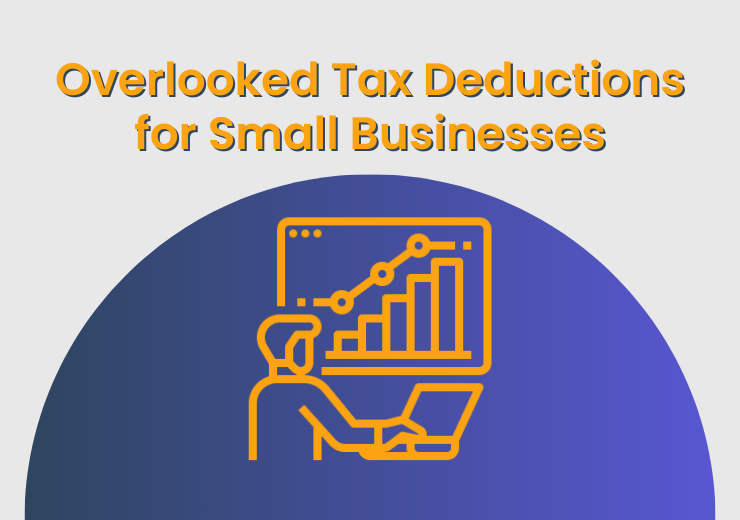Introduction
Small businesses often face numerous financial challenges, including tax obligations. However, many entrepreneurs overlook various deductions that can significantly reduce their tax burden. In this article, we’ll explore some commonly overlooked tax deductions that small businesses should take advantage of to maximize their savings.
Commonly Overlooked Tax Deductions
Home Office Deduction
For businesses operating from home, a portion of household expenses such as rent, utilities, and internet can be deducted as a home office expense. Many small business owners miss out on this deduction because they’re unaware of the criteria or fear it may trigger an audit. However, if you use a dedicated space in your home for business activities, you may qualify for this deduction.
Vehicle Expenses
Business-related vehicle expenses, including mileage, maintenance, and insurance, can be deducted. This includes both owned and leased vehicles used for business purposes. Keeping detailed records of mileage and expenses is crucial to accurately claim this deduction.
Startup Costs
Entrepreneurs often incur significant expenses when starting a new business. These startup costs, including market research, advertising, and legal fees, can be deducted up to a certain limit. Many small business owners overlook this deduction or fail to properly categorize their startup expenses.
Health Insurance Premiums
Small business owners who pay for their own health insurance premiums may be eligible for a deduction. This deduction can also apply to premiums paid for employees. It’s essential to understand the specific requirements and limitations associated with claiming this deduction.
Retirement Contributions
Contributions made to retirement plans such as SEP-IRAs, SIMPLE IRAs, or solo 401(k)s are typically tax-deductible for small business owners. However, many entrepreneurs overlook this deduction or fail to maximize their contributions due to lack of awareness.
Education Expenses
Investing in further education or professional development related to your business can be deductible. This includes courses, workshops, and conferences that enhance your skills and knowledge. Small business owners should keep records of expenses related to ongoing education to claim this deduction.
Marketing and Advertising Costs
Expenses incurred for marketing and advertising purposes, including website development, social media ads, and print materials, are deductible business expenses. Small businesses often overlook these deductions or fail to adequately track their marketing expenses throughout the year.
Travel Expenses
Business-related travel expenses, such as airfare, lodging, meals, and transportation, can be deductible. This includes travel for meetings, conferences, and client visits. Keeping detailed records and receipts is essential to substantiate these expenses.
Client Gifts
Gifts given to clients or business associates can be partially deductible, up to a certain limit per recipient per year. However, many small business owners either forget to track these expenses or are unsure of the IRS guidelines regarding deductible gifts.
Documentation and Record Keeping
Maintaining accurate records and documentation is crucial when claiming tax deductions. Small business owners should keep receipts, invoices, mileage logs, and other relevant documents organized throughout the year. Utilizing accounting software or hiring a professional bookkeeper can streamline this process and ensure compliance with IRS regulations.
Conclusion
Small businesses can significantly reduce their tax liabilities by taking advantage of commonly overlooked deductions. By understanding the eligibility criteria and maintaining thorough documentation, entrepreneurs can maximize their tax savings and improve their overall financial health.
FAQs
-
Are tax deductions only applicable to certain types of businesses?
- No, most tax deductions are available to businesses of all sizes and structures. However, eligibility criteria may vary based on specific deductions.
-
How can I determine which tax deductions apply to my business?
- Consult with a tax professional or accountant who can assess your circumstances and identify applicable deductions.
-
What if I forgot to claim a deduction in previous tax years?
- You may be able to file an amended return to claim overlooked deductions from previous years, depending on the statute of limitations.
-
Are there any deductions specifically for home-based businesses?
- Yes, home office deductions and deductions for utilities and other household expenses used for business purposes are available to qualifying home-based businesses.
-
Can I claim deductions for expenses incurred before my business officially started?
- Yes, startup costs incurred before your business began generating revenue can typically be deducted, subject to certain limitations.

